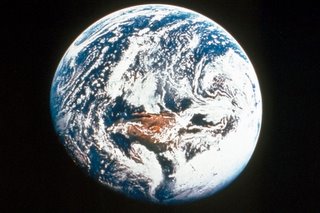The Real Mystery

Instead of preening and smirking about how smart they were, Coriolis and his buddies would have been better served by acknowledging that maybe--just maybe--they weren't so much smarter than their scientific predecessors after all. If Galileo and Newton and Copernicus couldn't observe manifestations of Earth's rotation in Earth herself, maybe--just maybe--those manifestations were simply not to be found. What's so impossible about that idea?
Question: Why, after hurtling through space at great speeds for millions of years are planets still spherical? Why is there no centripetal--or any other rotational forces-- at play?
Answer: Because: while all known gravitational fields are in constant motion through space, those motions do not accelerate, influence, alter or effect any particles belonging to said gravitational fields.
What is a planet but a Gravitational Field? And can any individual particle belong to a Gravitational Field & yet not share in each and every planetary motion of the Field? No.
When a NASA shuttle leaves Earth and heads out, say, to the Moon, a major, fundamental change takes place. Earth-surface motion is entirely different than space travel. One involves expenditure of energy, one doesn't.
Earth's planetary motions (chiefly solar orbit and daily rotation) do not involve any expenditure of energy, no application of force. I doubt if we will ever know whether Coriolis' use of that so-called analogy of the rotating disk was a stroke of evil genius or simply blind-ass luck. Either way--there's no viable excuse for people like you letting him get away with the crime--FOR 170 YEARS!
Suggestion: pull down your dusty old Scientific Encyclopedia off the shelf and re-read about the 'Coriolis Effect'. Note how it can't be explained without that 'rotating disk'. Now then: after 170 years, do you think it's possible to wonder whether that rotating disk is actually analogous to rotating Earth?
Well, it isn't. Not even close. The fundamental difference is the involvement of Energy. As stated: Earth's planetary motions do not involve energy. They are perpetual motion phenomena (something we call 'space travel'.) But if you read about Coriolis in your encyclopedia, and follow along with the helpful illustration of the 'rotating disk', you'll see that the disk is very much a creature of expenditure of energy. The longer a particle's radius, the more momentum, which means more energy. Which is so unlike Earth-surface motion it stinks.
Which ought to make us all smack ourselves in the head and scream, "So what the heck does that disk have to do with Earth?"
Answer: "Not a cotton pickin' thing!"

0 Comments:
Post a Comment
<< Home